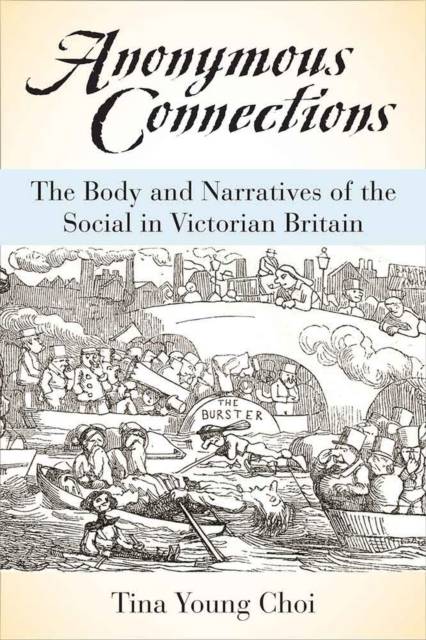
Bedankt voor het vertrouwen het afgelopen jaar! Om jou te bedanken bieden we GRATIS verzending (in België) aan op alles gedurende de hele maand januari.
- Afhalen na 1 uur in een winkel met voorraad
- In januari gratis thuislevering in België
- Ruim aanbod met 7 miljoen producten
Bedankt voor het vertrouwen het afgelopen jaar! Om jou te bedanken bieden we GRATIS verzending (in België) aan op alles gedurende de hele maand januari.
- Afhalen na 1 uur in een winkel met voorraad
- In januari gratis thuislevering in België
- Ruim aanbod met 7 miljoen producten
Zoeken
Anonymous Connections
The Body and Narratives of the Social in Victorian Britain
Tina Young Choi
Hardcover | Engels
€ 90,95
+ 181 punten
Omschrijving
Anonymous Connections asks how the Victorians understood the ethical, epistemological, and biological implications of social belonging and participation. Specifically, Tina Choi considers the ways nineteenth-century journalists, novelists, medical writers, and social reformers took advantage of spatial frames-of-reference in a social landscape transforming due to intense urbanization and expansion. New modes of transportation, shifting urban demographics, and the threat of epidemics emerged during this period as anonymous and involuntary forms of contact between unseen multitudes. While previous work on the early Victorian social body have tended to describe the nineteenth-century social sphere in static political and class terms, Choi's work charts new critical terrain, redirecting attention to the productive--and unpredictable--spaces between individual bodies as well as to the new narrative forms that emerged to represent them. Anonymous Connections makes a significant contribution to scholarship on nineteenth-century literature and British cultural and medical history while offering a timely examination of the historical forebears to modern concerns about the cultural and political impact of globalization.
Specificaties
Betrokkenen
- Auteur(s):
- Uitgeverij:
Inhoud
- Aantal bladzijden:
- 192
- Taal:
- Engels
Eigenschappen
- Productcode (EAN):
- 9780472119721
- Verschijningsdatum:
- 18/01/2016
- Uitvoering:
- Hardcover
- Formaat:
- Genaaid
- Afmetingen:
- 157 mm x 231 mm
- Gewicht:
- 408 g

Alleen bij Standaard Boekhandel
+ 181 punten op je klantenkaart van Standaard Boekhandel
Beoordelingen
We publiceren alleen reviews die voldoen aan de voorwaarden voor reviews. Bekijk onze voorwaarden voor reviews.









